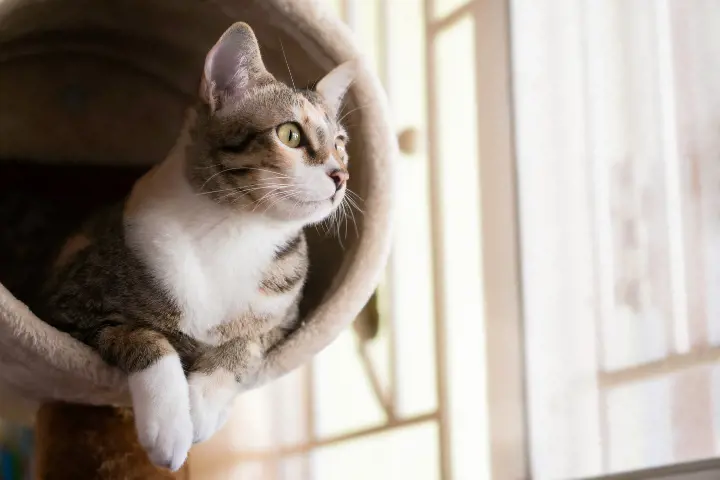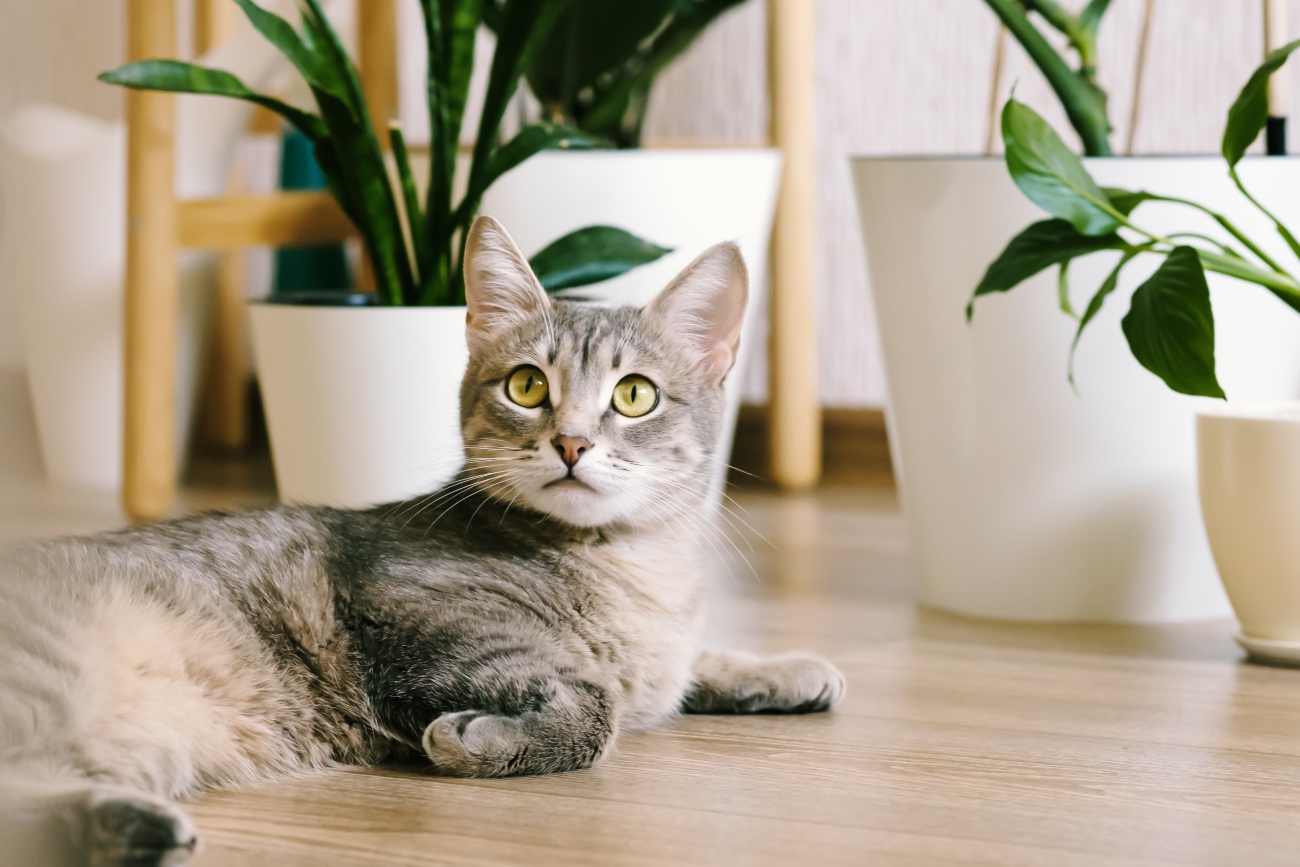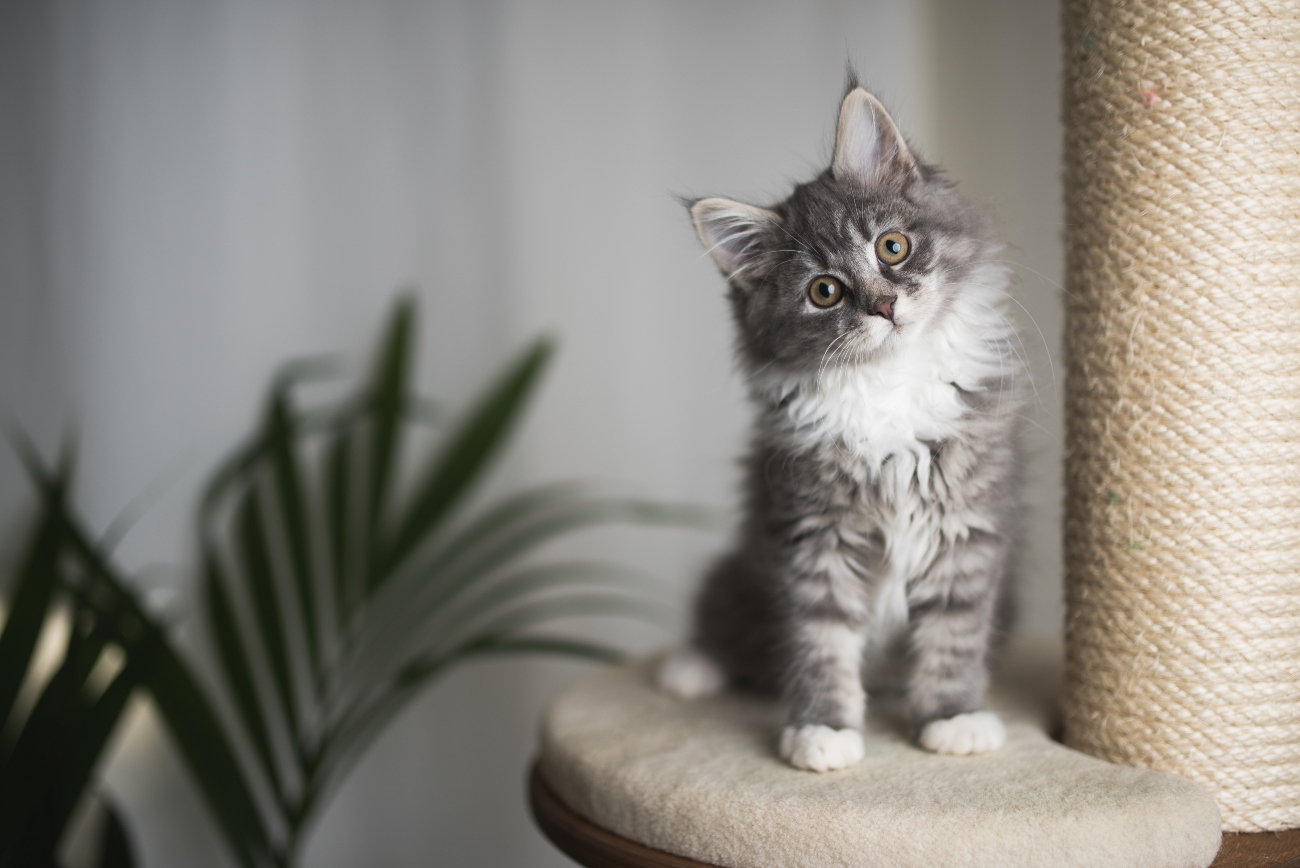Do indoor cats have a longer lifespan? A comprehensive analysis
20th November, 2023

Introduction
As a doting cat owner, there's no doubt that you want to ensure your beloved feline lives a long, happy, and healthy life. One of the most common questions that domestic cat owners ask is, "do indoor cats have a longer lifespan?".
It's a valid question considering the different risks and advantages associated with an indoor vs outdoor lifestyle for pet cats.
The average cat lifespan for outdoor cats is between 2 to 5 years whereas indoor cats live an average life expectancy between 12 to 15 years.
In this article, we will explore this topic in depth and provide you with the information you need to make the best choices for your feline friend.
Indoor vs outdoor cats: An overview
Before we dive into the specifics, let's clarify what we mean by indoor and outdoor cats. An indoor cat is one that spends all or the majority of its life indoors, within the confines of your home.
Conversely, an outdoor cat is one that roams freely outside for significant parts of the day, returning home for food, shelter, and interaction.
The lifespan of indoor cats
The average cat's life expectancy of an indoor cat is often quoted as between 12 to 15 years.
However, many indoor cats can live well into their late teens and even some pet cats live well into their twenties. The oldest recorded age for a cat is an impressive 38 years!
Factors influencing the lifespan of indoor cats
There are many factors that can influence the lifespan of indoor cats:
- Genetics: Some breeds are known to live longer than others. Certain feline breeds, such as Siamese and Manx, are recognised for their impressive lifespan.
- Diet and exercise: Indoor cats need to have a well-rounded diet and consistent exercise. This helps them stay at an optimal weight and avoid health problems linked to obesity.
- Preventive healthcare: Regular veterinary check-ups and preventative healthcare measures such as vaccinations and flea and worm treatments can significantly extend a cat's lifespan.
- Environment: A safe, stimulating, and stress-free environment can contribute to a cat's overall health and longevity.
The lifespan of outdoor cats
When we turn our attention to outdoor cats, the average lifespan drops significantly. Outdoor cats' typical life expectancy is an average of just 2 to 5 years.
This stark contrast to the lifespan of indoor cats is primarily due to the increased risks and hazards that outdoor cats face.
Risks and hazards for outdoor cats
- Traffic accidents: Outdoor cats are at risk of being hit by cars, which is a leading cause of death among these cats.
- Disease transmission: Outdoor cats are at higher risk of contracting diseases such as feline leukaemia and feline immunodeficiency virus.
- Predators and cat fights: Outdoor cats may have to defend themselves from other cats and predators, leading to injuries and potential infections.
- Exposure to harmful substances: Cats that roam outdoors may come into contact with harmful substances such as pesticides or poisons.
- Weather conditions: Extreme weather conditions can pose a threat to outdoor cats.
Should you let your cat go outside?

The decision to let your pet cat outdoors is a personal one and should be made based on your specific circumstances. If you live in a busy city or near a busy road, the risks of letting your cat outdoors may outweigh the benefits.
However, if you live in a quiet, rural area, your cat may be able to safely enjoy some outdoor time.
Safe outdoor options for pet cats
If you decide to allow your cat some outdoor time, there are safe options to consider:
- Cat harnesses and enclosures: You can train your cat to walk on a harness and leash by mastering the steps on harness training, or provide an outdoor cat enclosure or 'catio' for them to safely enjoy the outdoors.
- Supervised outdoor time: Supervising your cat while they explore your garden can ensure they don't wander off and get into trouble.
Behavioural changes in ageing cats
As cats age, they often experience behavioural changes. These can include:
- Altered sleep cycles
- Reduced stress tolerance
- Changes in vocalisations
However, a healthy ageing cat should maintain its ability to play and jump, albeit at a reduced level compared to its younger years.
Do indoor cats age slower?
While it's not quite accurate to say that indoor cats age slower in the sense of their biological clock, it's true that indoor cats often have a longer lifespan compared to their outdoor counterparts.
The controlled environment of the indoors removes many potential risks and dangers that can negatively impact a cat's health and longevity.
Indoor cats aren't exposed to hazards like traffic, predators, extreme weather conditions or fights with other animals, which can significantly reduce their lifespan.
Moreover, they're also less likely to contract diseases or parasites that are common among outdoor cats.
Another key factor is that indoor cats generally receive regular meals and clean water, and any health issues are likely to be noticed and treated sooner.
How to ensure a long and healthy life for your indoor cat
Here are some tips to help your indoor cat live a long and healthy life:
- Enrich their environment: Provide your cat with plenty of interactive toys and activities to keep them mentally and physically stimulated.
- Regular vet check-ups: Regular veterinary check-ups are essential to help identify and treat any potential health issues early.
- Balanced diet and exercise: Feed your cat a balanced healthy diet and ensure they get plenty of exercise to maintain a healthy weight.
- Regular grooming: Regular grooming can help keep your cat's skin and coat healthy, and is also a good opportunity to check for any abnormalities.
The role of pet insurance
Indoor cat insurance can play a vital role in ensuring the long-term health of your cat. It can provide cover for a range of treatment for illnesses and injuries to domestic cats.
For a cat insurance quote for your furry friend, you can visit our website or get in touch with our cat insurance team on 0330 102 5748.
Conclusion

So, do indoor cats have a longer lifespan? The answer is generally yes. Indoor cats are less exposed to the many risks and hazards that outdoor cats face, which can contribute to a longer, healthier life.
However, it's essential to provide your indoor cat with a stimulating environment, regular exercise, a balanced diet, and regular veterinary care to ensure they live their longest, happiest life possible.
Frequently asked questions
Do male or female cats live longer lifespans?
When it comes to the longevity of our furry friends, the question arises: do male or female cats live longer? Well, the answer might surprise you. While there isn't a clear-cut winner in terms of gender, studies have shown that on average, female cats tend to live slightly longer than their male counterparts.
The reasons behind this phenomenon are still being researched, but it could be attributed to a variety of factors:
- One possibility is that female cats are generally smaller in size, which may reduce the strain on their bodies and put less stress on their organs.
- Another reason could be related to genetics, as females are more likely to inherit certain genes that promote longevity. Female cats are less prone to certain health issues, such as urinary tract infections and blockages, which can be life-threatening for male cats.
Helpful Pages
Recent Posts
Pet Insurance Quote
- 98% claims paid *
- Claims paid directly to vets
- 24/7 vet video consultations
- Interest free monthly payments




